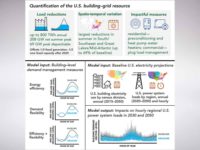ALEXANDRIA, Va. — To celebrate World Engineering Day, DiscoverE and its partners WFEO and Concord Evaluation Group hosted its second-annual Global Engineer Survey. The survey gathered responses on the future of engineering from more than 10,000 engineers, technicians, and technologists from 119 countries. The 12-question online survey was administered through Survey Monkey on Nov. 11, 2019, through Jan. 17, 2020, and was available in six languages: English, Spanish, Chinese, Arabic, Russian, and French.
Of the 10,777 participants, 82% were engineers (8,232); 8%, technologists (813); 7%, technicians (705); and 3%, none of the above (327).
The results were first announced on March 4 — World Engineering Day. Results revealed that survey respondents felt space travel, artificial intelligence, and transportation will be the top areas to see science fiction-like advances.
In the next 25 years, service robots programmed with artificial intelligence will be commercialized and popularized. Technologies, such as self-driving vehicles and automatic crop monitoring, will be standardized. Personal space travel is coming. Just as Henry Ford introduced automated assembly lines to make cars affordable for the common man, someone will do that for space ships. Additionally, solar-power planes will carry commercial passengers, green energy will be at cost parity or better with conventional carbon-based energy, and energy efficient high-speed rail will overtake flying for domestic travel and daily commuting.
Here are some more results from the survey.
What Is the Most Daunting Global Challenge We Will Face in the Next 25 Years?
- Securing Cyberspace - 19%
- Economical Clean Energy - 18%
- Sustaining Lands and Oceans - 16%
- Sustainable and Resilient Infrastructure - 11%
- Sustainable Cities - 9%
- Access to Clean Water and Sanitation - 8%
- Clean Air - 8%
- Food Security - 4%
- Preparing and Containing Pandemics - 4%
- Developing and Delivering Better Medicines - 4%
On a Scale of 1-100, How Optimistic Are You that the Engineering Community Can Solve These Challenges?
- Developing and Delivering Better Medicines - 64.58
- Securing Cyberspace - 64.21
- Economical Clean Energy - 64.01
- Sustainable and Resilient Infrastructure - 62.89
- Sustainable Cities - 63.28
- Access to Clean Water and Sanitation - 61.40
- Clean Air - 60.96
- Food Security - 60.32
- Preparing and Containing Pandemics - 58.97
- Sustaining Lands and Oceans - 56.92
What Are the Limiting Factors to Solving These Challenges?
- Necessary support from government & policy makers is lacking - 29.3%
- Necessary technologies have not yet been developed - 13.3%
- Lack of interdisciplinary collaboration & international cooperation - 12.5%
- Not enough public support for innovative engineering solutions - 9.8%
- Lack of funding - 9.7%
- Not enough engineers & technical professionals to address the issue - 7.0%
- Lack of diversity in the workforce - 4.9%
- Don’t know - 4.7%
- Other - 4.5%
- Day-to-day work pressures - 4.3%
Do You Believe There Is a Current Shortage of Engineers?
- Agree or strongly agree - 51.7%
- Neutral - 29.1%
- Disagree or strongly disagree - 19.2%
Do You Believe There Will Be a Shortage of Engineers in the Future?
- Agree or strongly agree - 54.3%
- Neutral - 24.4%
- Disagree or strongly disagree - 21.3%
How Important Is it to Volunteer with Students?
- Not important - 4.1%
- Important - 48.4%
- Very important - 47.4%
For more information, or to view the entire survey, visit www.discovere.org.








